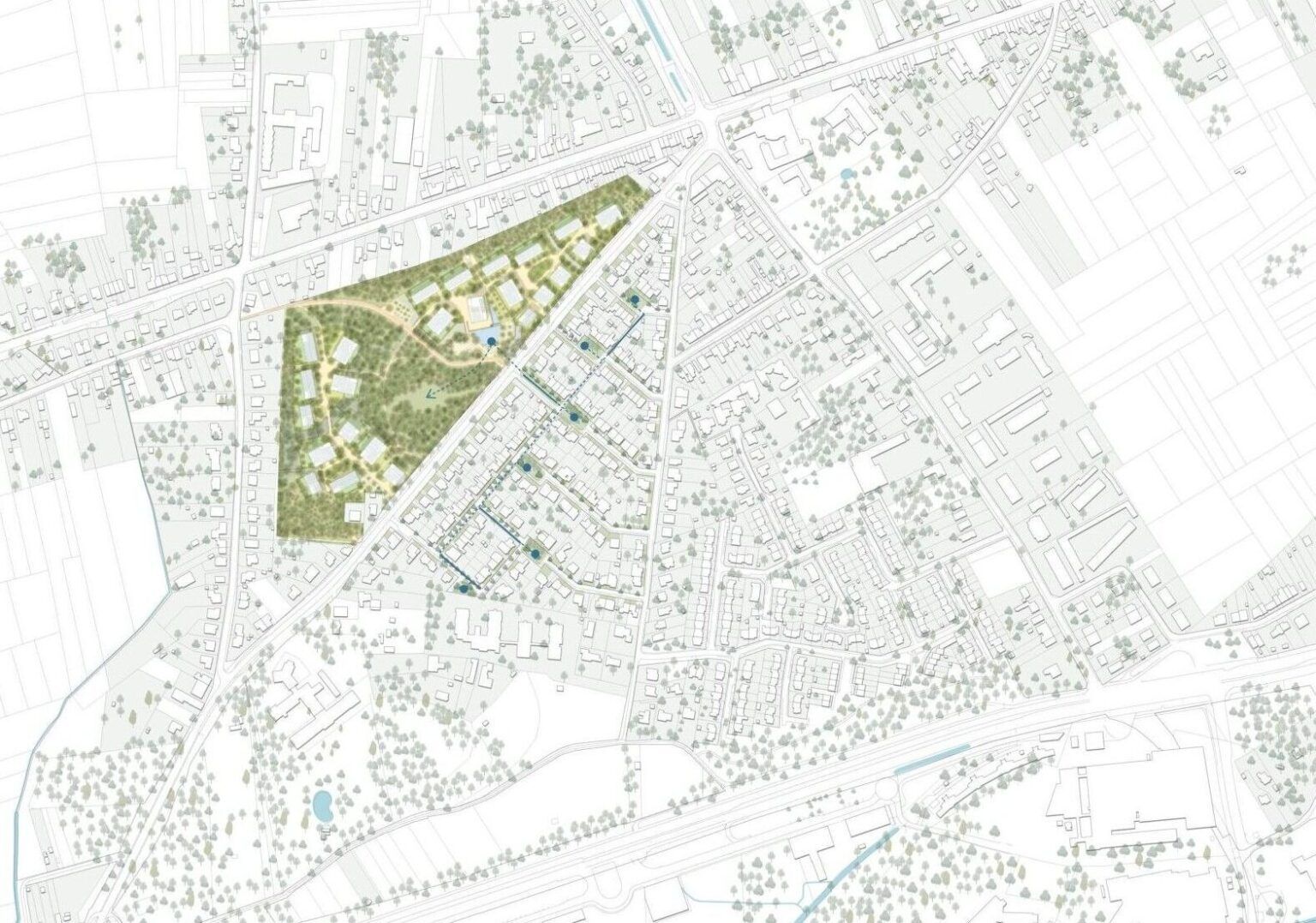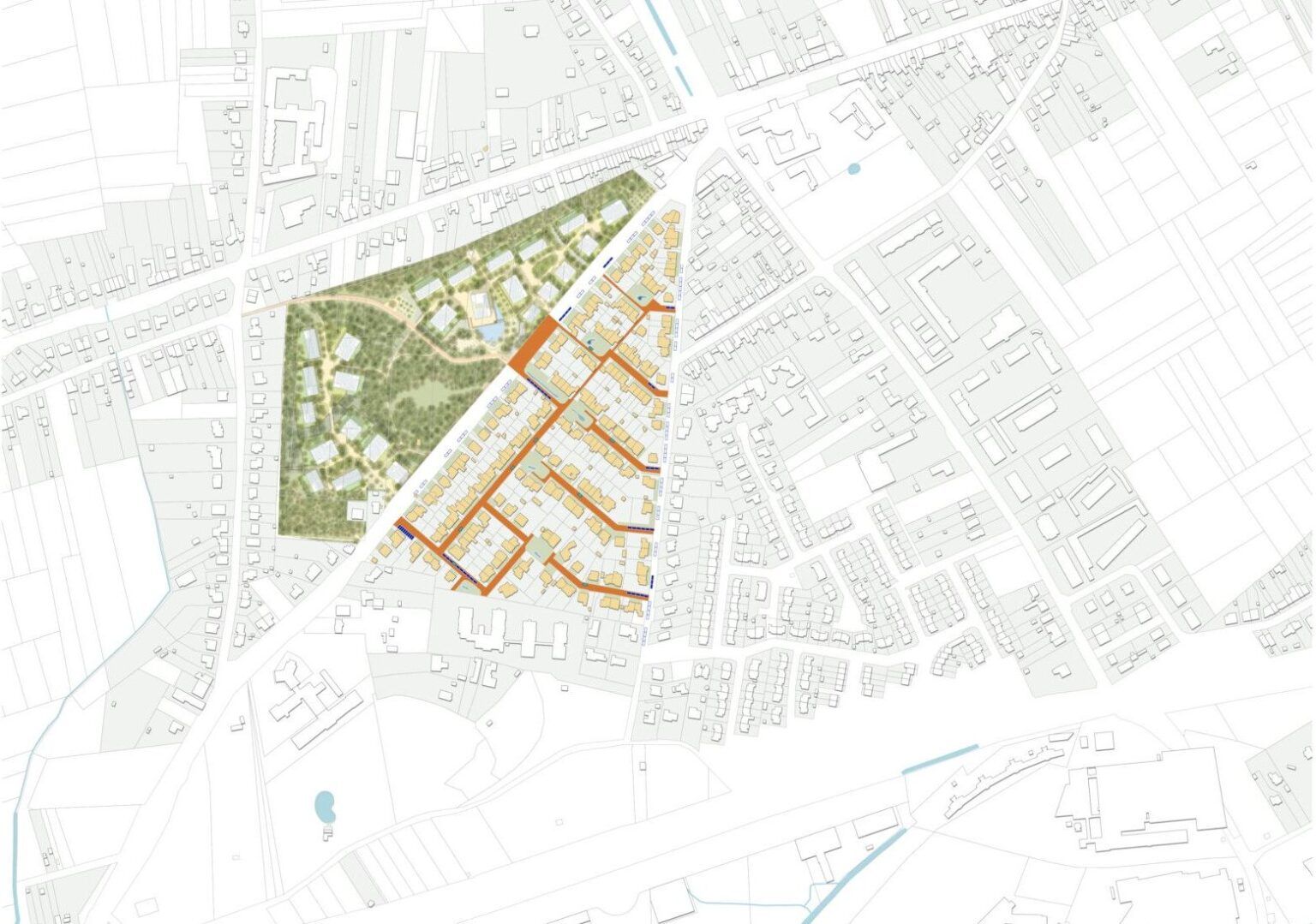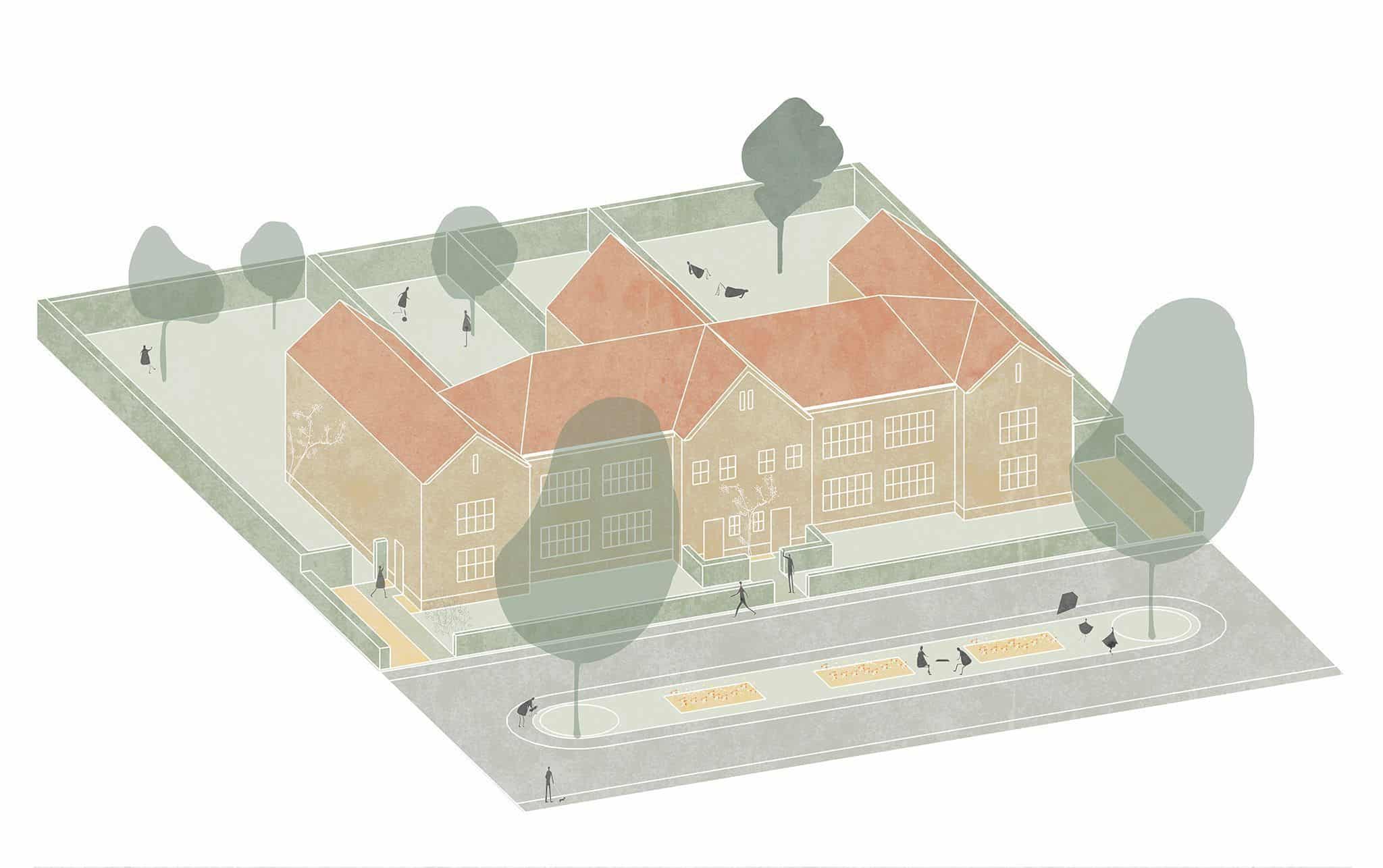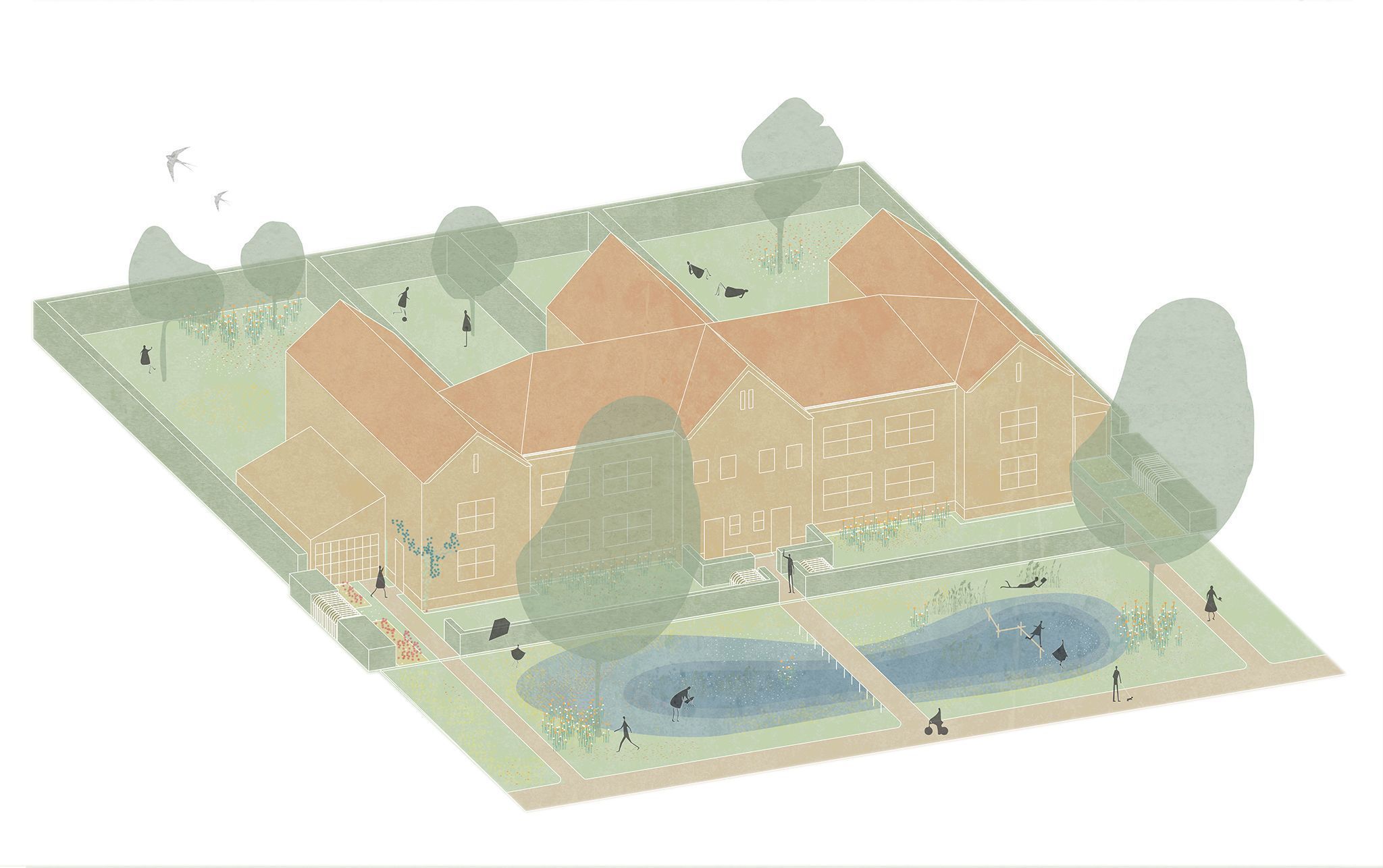

When garden suburbs were built on a large scale in the 1950s, it demanded a collective effort from the city, entrepreneurs and future residents. The collective approach was then the answer to the post-war housing shortage. In a short time, residential neighbourhoods emerged from a similar plan and unified materialisation. Today, the garden suburbs of yesteryear are energetically obsolete, the ownership structure is fragmented or they have lost their homogeny or green character. The energy and climate crisis are forcing us to think collectively again. Individually, the transition to a carbon-free and climate-robust living environment is proceeding too casually and in staggered fashion. We are in danger of not achieving the goals due to a lack of cooperation. Garden neighbourhoods are the ideal starting point to rediscover the virtues of collective thinking. For the Climate District Leuven project, the design team defined seven transition questions that specify the issues in the Ter Elst garden suburb. They looked for collective levers and bottlenecks, hoping that the solution approach can inspire similar neighbourhoods and research projects.
The seven transition questions for garden neighbourhood Ter Elst: How valuable is garden neighbourhood Ter Elst? How do we make Ter Elst climate-adaptive? How do we move around sustainably? How do we insulate our homes? How do we switch to CO2-neutral energy? How do we pay for the transition? How do we start the transition?

